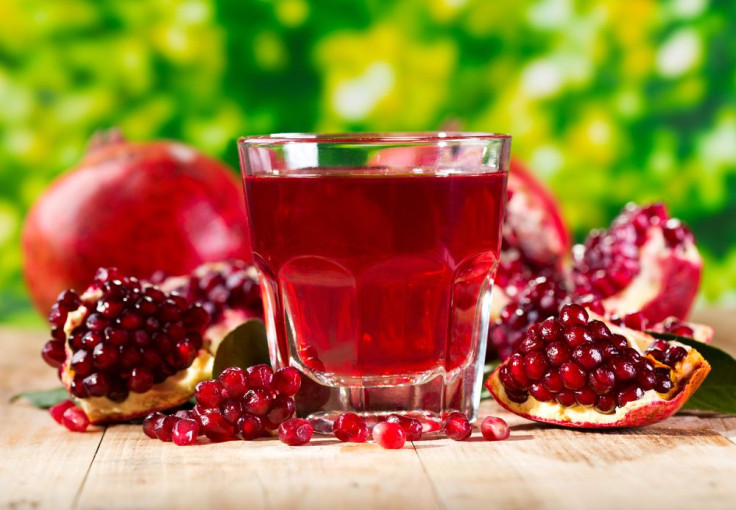Minute Maid Pomegranate Juice Is Actually 99.4% Apple And Grape Juices; Supreme Court Rules Competitor Can Sue

Minute Maid has been selling a product it labels as pomegranate and blueberry juice. Problem is, the contents are almost exclusively cheaply harvested apple and grape juices, with just a smidge of pomegranate juice and even less blueberry juice.
On Thursday, the Supreme Court ruled that a competitor, POM Wonderful — which sells honest-to-God, 100 percent pomegranate juice — can continue with its lawsuit against Coca-Cola, the parent company of Minute Maid. POM Wonderful wants a court to order Minute Maid to change its labels immediately and pay damages to its competitor for luring consumers with misleading marketing. The Minute Maid juice contained 99.4 percent apple and grape juice, 0.3 percent pomegranate juice, 0.2 percent blueberry juice and 0.1 percent raspberry juice.
"Despite the minuscule amount of pomegranate and blueberry juices in the blend, the front label of the Coca-Cola product displays the words 'pomegranate blueberry' in all capital letters, on two separate lines," wrote Justice Anthony Kennedy in the court's decision. "Below those words, Coca-Cola placed the phrase 'flavored blend of 5 juices' in much smaller type ... The product’s front label also displays a vignette of blueberries, grapes, and raspberries in front of a halved pomegranate and a halved apple." Here is the product description, including a photo, on Minute Maid's website.
The case reached the Supreme Court after lower courts said the Food and Drug Administration's implicit approval of the label precluded any competitors bringing suit. Under a law called the Lanham Act, companies can sue their competitors if they believe misleading product descriptions are creating an unfair advantage. The justices, then, were not actually ruling on whether the labeling is unfair — instead, they ruled that POM Wonderful has a right to bring the claim. Eight justices agreed; Stephen Breyer didn't participate.
Juices are a notorious hotbed of hoodwinking. In 2009, Nestlé got in trouble for calling Juicy Juice "Brain Development Fruit Juice." (The FDA said it's not.) POM Wonderful brought a previous pomegranate claim, similar to its suit against Coca-Cola, against Welch's in 2010. (The parties settled.)
In fact, POM Wonderful hasn't always been entirely honest about its pomegranate juice, according to a Federal Trade Commission charge in 2010 that said the company had no right to claim its juice prevents heart disease and erectile dysfunction. "Any consumer who sees POM Wonderful products as a silver bullet against disease has been misled," said David Vladeck, director of the FTC's Bureau of Consumer Protection, at the time. The charge was substantiated last year by the FTC and an administrative law judge.
Published by Medicaldaily.com



























